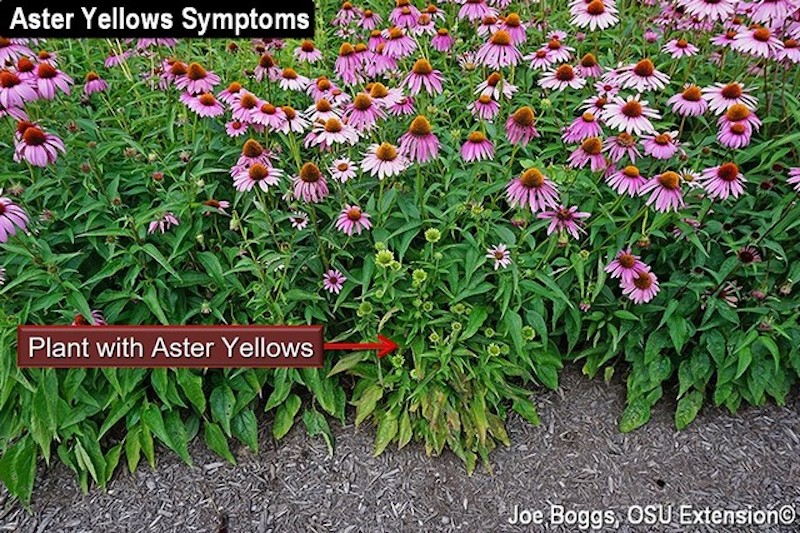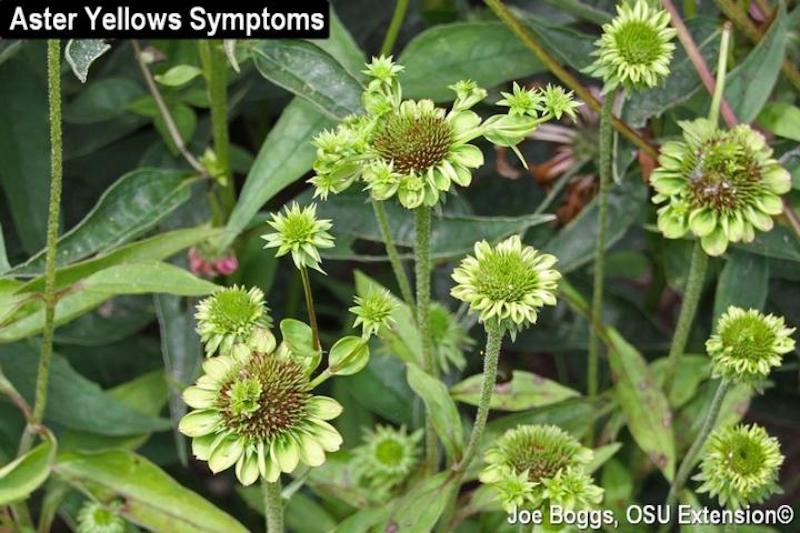Coneflowers have a timeless look and give a bed, border, or mass planting an old-world charm while introducing color, texture, and height. These are easy-care landscape plants that do well with little effort once established. Unfortunately, coneflowers can fall victim to certain diseases. The good news is that coneflower diseases are treatable and even preventable.

Photo courtesy of Joe Boggs
Coneflower Powdery Mildew
Powdery mildew is a fungal disease that impacts foliage. Infected leaves will wither and die if left untreated. The fungus is more likely to emerge in damp conditions. Poor air circulation, increased moisture, improper watering, and high humidity can all contribute to powdery mildew on coneflowers.
Identifying Powdery Mildew
Powdery mildew appears as yellow spots on foliage that later turn white. With time, the infected leaf will be covered in mildew and have a slightly fuzzy texture.
Treating Powdery Mildew
Treat powdery mildew on coneflowers by removing and destroying infected foliage. Divide the plants to allow for more air to flow around the foliage. Coneflowers are drought tolerant once established, so they do not need to be watered often, but if you do water, saturate the ground and try to leave the foliage dry when possible.
Coneflower Aster Yellows
Aster yellows is a bacteria that infects vegetable plants and flowering plants, like coneflowers. The bacteria is carried by insects, like leafhoppers, that leave it behind after feeding on the plant.
Identifying Aster Yellows
Signs of aster yellows on coneflowers include yellow flowers and stems. Flowers will be small, green, and distorted. Eventually, the plant will wither and die.

Photo courtesy of Joe Boggs
Treating Aster Yellows
There is no treatment for coneflowers infected with aster yellows. Once this bacteria infects a plant, there is no cure. Remove and destroy the coneflower to prevent the spread of the disease to nearby plants.
Coneflower Disease Chart
|
Disease |
Identifying |
Treating |
|
Powdery Mildew |
Yellow or white spots on leaves |
Proper air circulation |
|
Aster Yellows |
Yellow stems, stunted growth, distorted flowers |
Remove and destroy plant |
Sources:
"Echinacea." Clemson University Cooperative Extension Service. hgic.clemson.edu
"Pest Alert – Coneflower Diseases." N.C. Cooperative Extension. henderson.ces.ncsu.edu
 |
Author Alison Cotsonas - Published 05-16-2023 |


